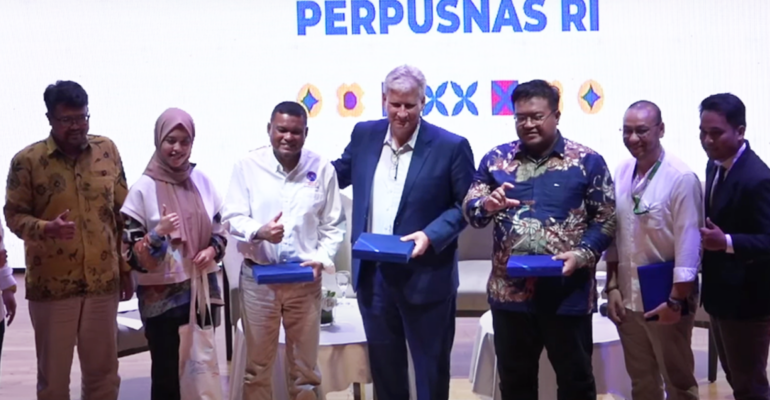Aquafest IPB University Discusses Blue Economy to Increase Vaname Shrimp Production

Aquafest IPB University 2023 is back to introduce the latest updates in the fishing industry. One of the series of events was the Blue Economy Implementation Seminar for Increasing Vaname Shrimp Production in the Digitalization Era, which was held at the National Library (Perpusnas), Jakarta on 7/10.
The seminar provided a platform for participants to gain a deeper understanding of the implementation of blue economy in vaname shrimp farming, especially in the rapidly growing digitalization era.
Ir Denny D Indradjaja, Secretary General of the Indonesian Aquaculture Society, expressed the importance of the continuity between time, space, and technological developments in the fishing industry. “Today we are required to have a deep understanding of technology, especially Artificial Intelligence (AI),” he explained.
He also emphasized the need for critical thinking and that there is no one perfect way to tackle every problem, but struggle and experimentation are the keys to success.
The first speaker, Abdul Barr Ibrahim (Abe), CEO of Abarobotic, discussed the important role of Artificial Intelligence in shrimp farming. Abe highlighted the challenges humans face in managing shrimp farming, such as water quality, feed distribution, and diverse shrimp conditions.
“AI can provide more accurate analysis and can be customized according to the needs of shrimp farming. This will help shrimp farmers make better and more efficient decisions,” he said.
Another speaker, Rico Wisnu Wibisono, COO of Fistx, discussed sustainable shrimp production strategies. Rico highlighted various challenges in shrimp farming, such as environmental health, price competition, and traceability issues.
“The selection of appropriate feed, quality seeds, efficient facilities and infrastructure, and the use of appropriate technology can help achieve sustainable shrimp production,” said Rico.
Meanwhile, Robin Pearl, Founder and President of API, discussed the role of genetics in saving shrimp farms. He revealed that genetics plays a key role in increasing shrimp production that is strong and resistant to various challenges.
“The shrimp selection process can be seen based on genetics, starting from the selection of shrimp candidates that have a high survival rate to the process of selecting shrimp broodstock that will be used for further hatcheries,” said Robin. (IAAS/SHY)



